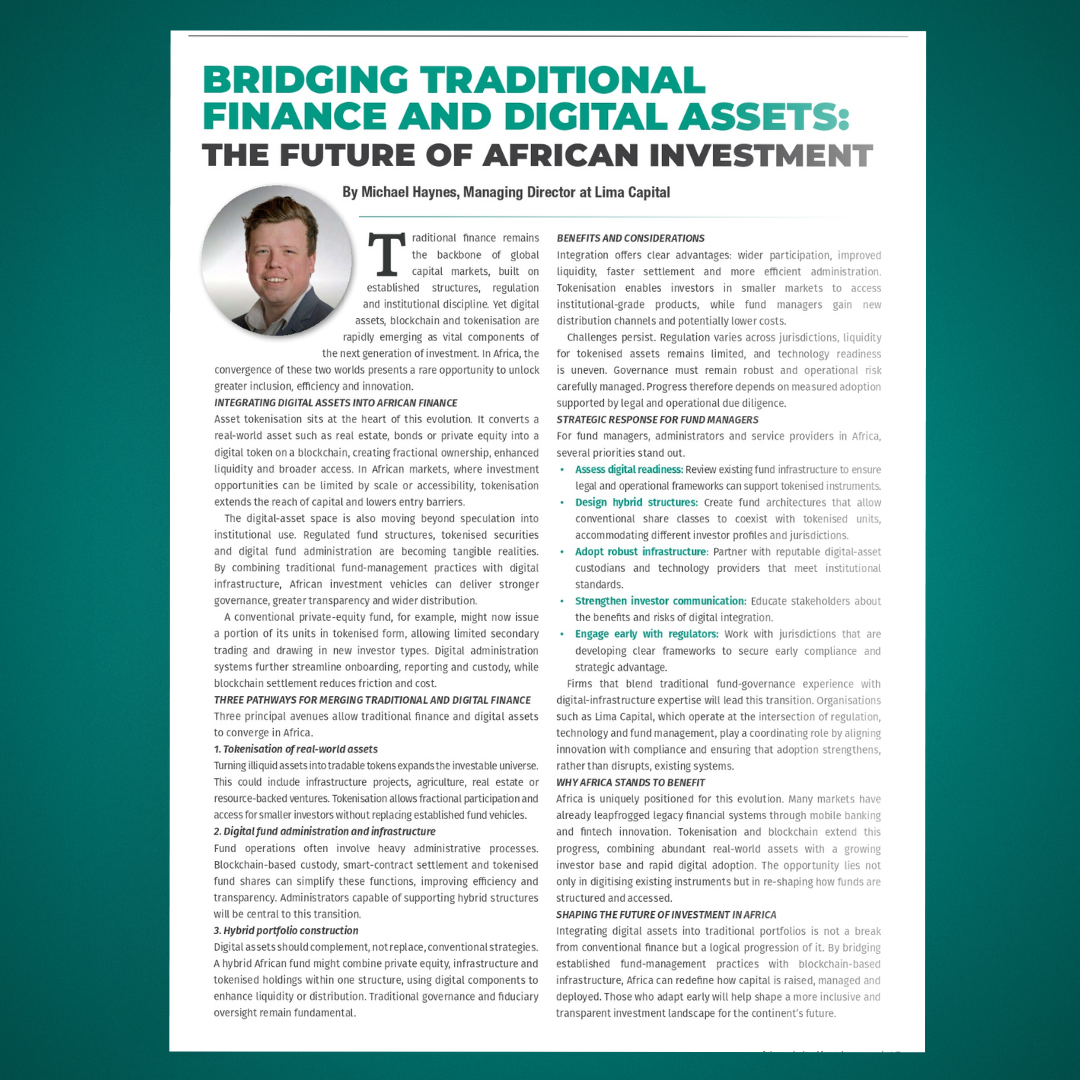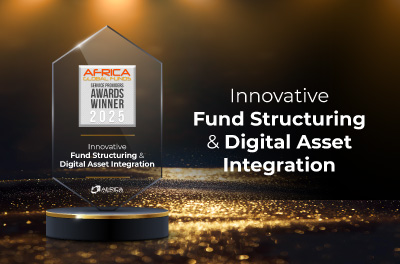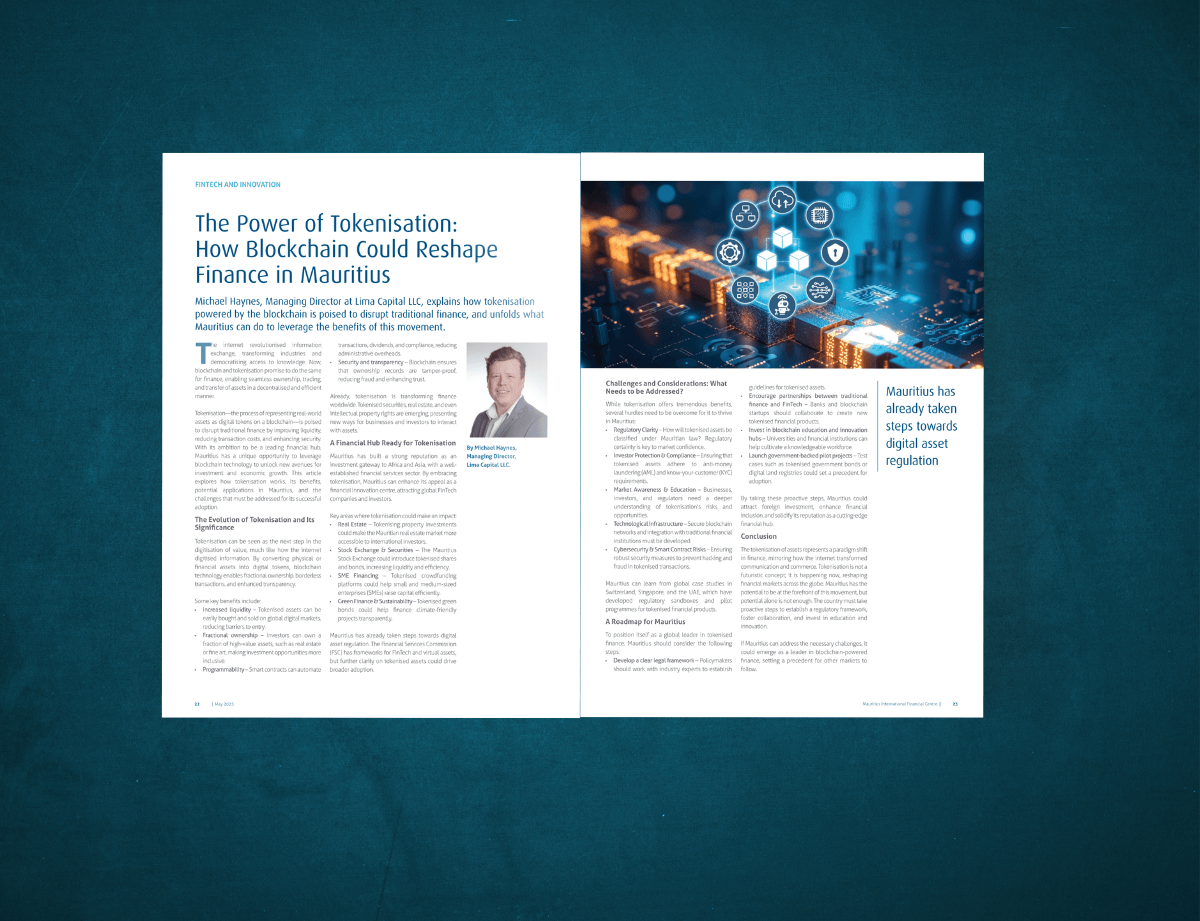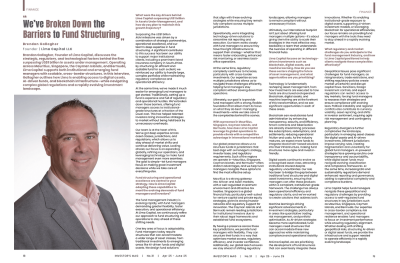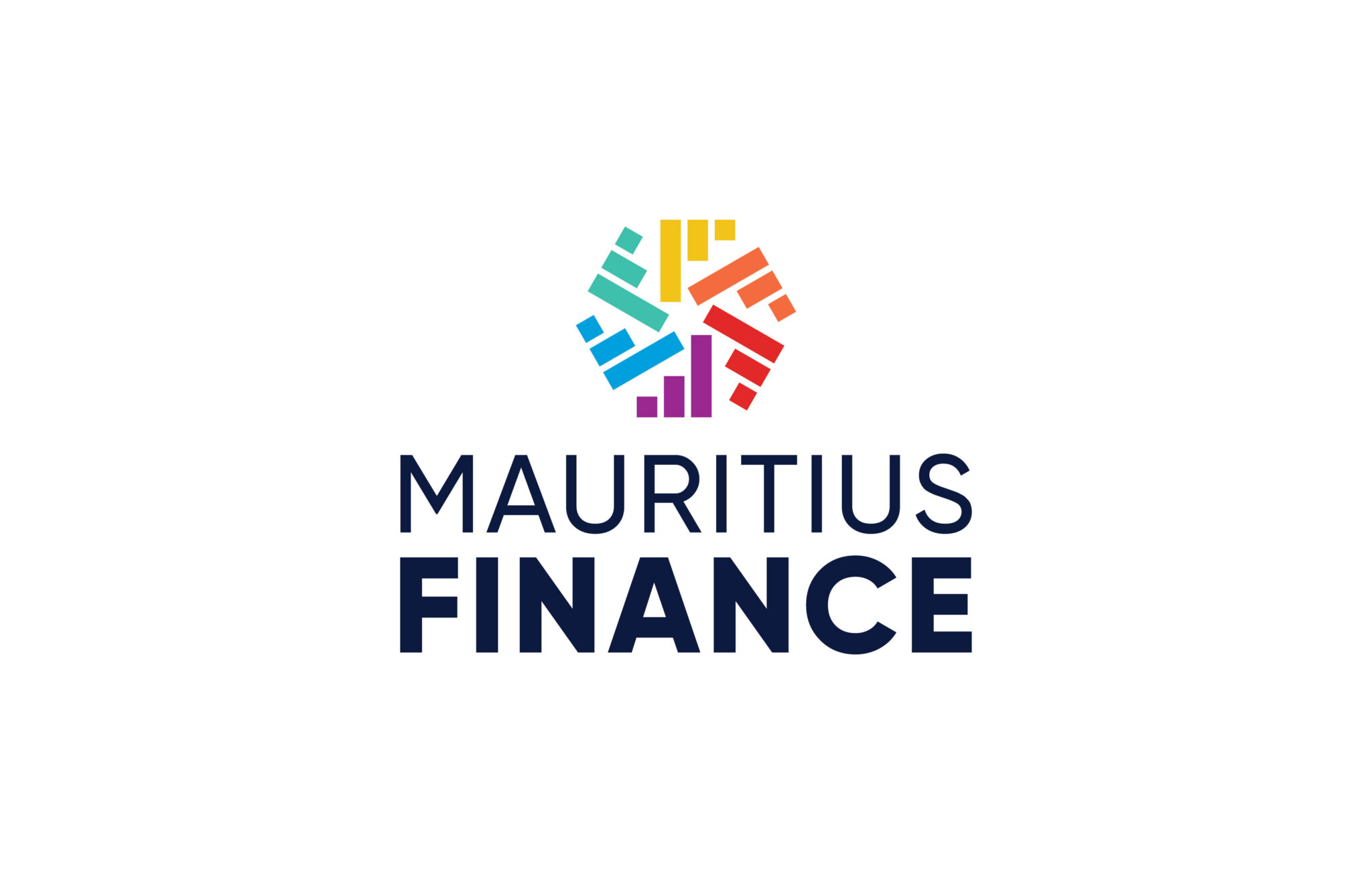Michael Haynes, Managing Director at Lima Capital LLC, explains in the Mauritius Finance Magazine how tokenisation powered by the blockchain is poised to disrupt traditional finance, and unfolds what Mauritius can do to leverage the benefits of this movement.
The internet revolutionised information exchange, transforming industries and democratising access to knowledge. Now, blockchain and tokenisation promise to do the same for finance, enabling seamless ownership, trading, and transfer of assets in a decentralised and efficient manner.
Tokenisation—the process of representing real-world assets as digital tokens on a blockchain—is poised to disrupt traditional finance by improving liquidity, reducing transaction costs, and enhancing security. With its ambition to be a leading financial hub, Mauritius has a unique opportunity to leverage blockchain technology to unlock new avenues for investment and economic growth. This article explores how tokenisation works, its benefits, potential applications in Mauritius, and the challenges that must be addressed for its successful adoption.
The Evolution of Tokenisation and Its Significance
Tokenisation can be seen as the next step in the digitisation of value, much like how the internet digitised information. By converting physical or financial assets into digital tokens, blockchain technology enables fractional ownership, borderless transactions, and enhanced transparency.
Some key benefits include:
- Increased liquidity – Tokenised assets can be easily bought and sold on global digital markets, reducing barriers to entry.
- Fractional ownership – Investors can own a fraction of high-value assets, such as real estate or fine art, making investment opportunities more inclusive.
- Programmability – Smart contracts can automate transactions, dividends, and compliance, reducing administrative overheads.
- Security and transparency – Blockchain ensures that ownership records are tamper-proof, reducing fraud and enhancing trust.
Already, tokenisation is transforming finance worldwide. Tokenised securities, real estate, and even intellectual property rights are emerging, presenting new ways for businesses and investors to interact with assets.
A Financial Hub Ready for Tokenisation
Mauritius has built a strong reputation as an investment gateway to Africa and Asia, with a well-established financial services sector. By embracing tokenisation, Mauritius can enhance its appeal as a financial innovation centre, attracting global FinTech companies and investors.
Key areas where tokenisation could make an impact:
- Real Estate – Tokenising property investments could make the Mauritian real estate market more accessible to international investors.
- Stock Exchange & Securities – The Mauritius Stock Exchange could introduce tokenised shares and bonds, increasing liquidity and efficiency.
- SME Financing – Tokenised crowdfunding platforms could help small and medium-sized enterprises (SMEs) raise capital efficiently.
- Green Finance & Sustainability – Tokenised green bonds could help finance climate-friendly projects transparently.
Mauritius has already taken steps towards digital asset regulation. The Financial Services Commission (FSC) has frameworks for FinTech and virtual assets, but further clarity on tokenised assets could drive broader adoption.
Challenges and Considerations: What Needs to be Addressed?
While tokenisation offers tremendous benefits, several hurdles need to be overcome for it to thrive in Mauritius:
- Regulatory Clarity – How will tokenised assets be classified under Mauritian law? Regulatory certainty is key to market confidence.
- Investor Protection & Compliance – Ensuring that tokenised assets adhere to anti-money laundering (AML) and know-your-customer (KYC) requirements.
- Market Awareness & Education – Businesses, investors, and regulators need a deeper understanding of tokenisation’s risks and opportunities.
- Technological Infrastructure – Secure blockchain networks and integration with traditional financial institutions must be developed.
- Cybersecurity & Smart Contract Risks – Ensuring robust security measures to prevent hacking and fraud in tokenised transactions.
Mauritius can learn from global case studies in Switzerland, Singapore, and the UAE, which have developed regulatory sandboxes and pilot programmes for tokenised financial products.
A Roadmap for Mauritius
To position itself as a global leader in tokenised finance, Mauritius should consider the following steps:
- Develop a clear legal framework – Policymakers should work with industry experts to establish guidelines for tokenised assets.
- Encourage partnerships between traditional finance and FinTech – Banks and blockchain startups should collaborate to create new tokenised financial products.
- Invest in blockchain education and innovation hubs – Universities and financial institutions can help cultivate a knowledgeable workforce.
- Launch government-backed pilot projects – Test cases such as tokenised government bonds or digital land registries could set a precedent for adoption.
By taking these proactive steps, Mauritius could attract foreign investment, enhance financial inclusion, and solidify its reputation as a cutting-edge financial hub.
Conclusion
The tokenisation of assets represents a paradigm shift in finance, mirroring how the internet transformed communication and commerce. Tokenisation is not a futuristic concept; it is happening now, reshaping financial markets across the globe. Mauritius has the potential to be at the forefront of this movement, but potential alone is not enough. The country must take proactive steps to establish a regulatory framework, foster collaboration, and invest in education and innovation.
If Mauritius can address the necessary challenges, it could emerge as a leader in blockchain-powered finance, setting a precedent for other markets to follow.

